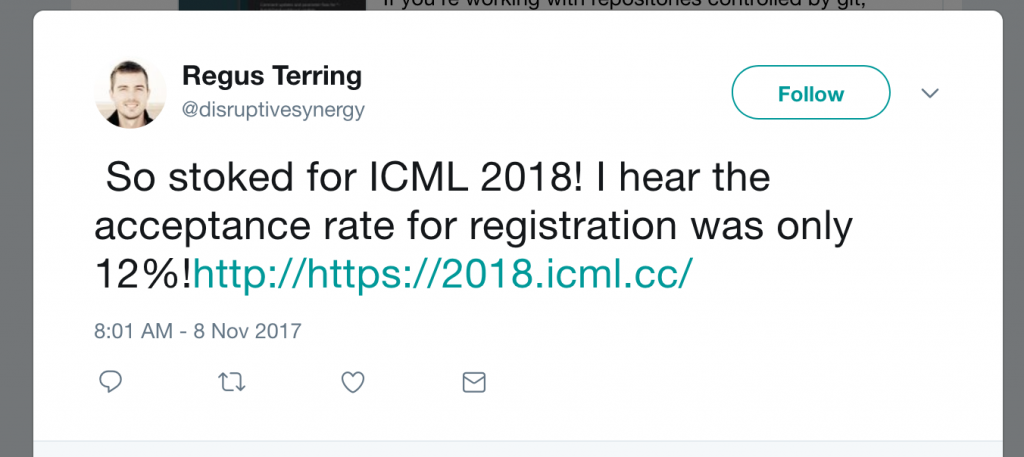What is a conference? Common definitions provide only a vague sketch: “a meeting of two or more persons for discussing matters of common concern” (Merriam Webster a); “a usually formal interchange of views” (Merriam-Webster b); “a formal meeting for discussion” (Google a).
What qualifies as a meeting? Are all congregations of people in all places conferences? How formal must it be? Must the borders be agreed upon? Does it require a designated name? What counts as a discussion? How many discussions can fit in one conference? Does a sufficiently formal meeting held within the allotted times and assigned premises of a larger, longer conference constitute a sub-conference?

Absent context, the word verges on vacuous. And yet in professional contexts, e.g., among computer science academics, culture endows precise meaning. Google also offers a more colloquial definitions that cuts closer:
Continue reading “The Greatest Trade Show North of Vegas (Pressing Lessons from NeurIPS 2018)”
